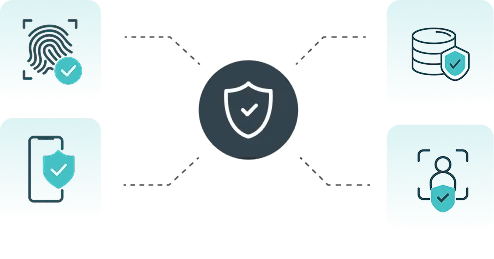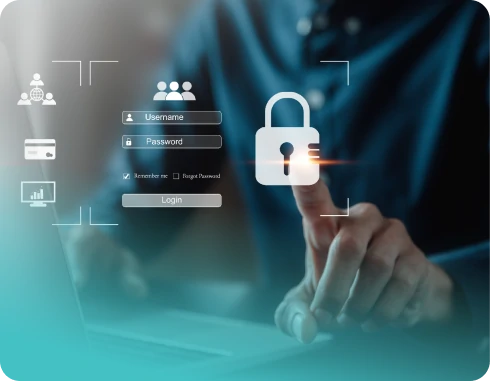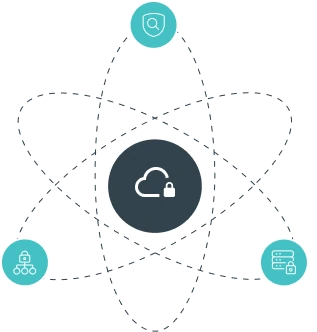
We’ll guide you step by step — through the assessment of your security posture and the selection of effective solutions.
As part of the service, we secure network infrastructure against potential attacks, including malware and unauthorized access attempts.

We offer network traffic monitoring, access point security, firewall configuration, software updates, access management and Zero Trust technologies. We also provide training to raise user awareness of security practices.
Firewall systems play a key role in ensuring network security. They monitor and control incoming and outgoing network traffic based on predefined security policies.
Traditional firewalls offer a basic layer of protection. They mainly focus on filtering traffic based on IP addresses and ports.
Next-Generation Firewalls (NGFW) have advanced features, such as:
A proxy system acts as an intermediary between users and the Internet. Proxy servers can be configured within both hardware and software.
between users and the Internet. Proxy servers can be configured within both hardware and software. They are often an integral part of cybersecurity strategies in companies and institutions .
A proxy server can perform various preventive actions, such as:
We offer advanced endpoint protection and response (EDR) systems equipped with security analytics functionality to protect End Stations.
The following systems provide effective end station protection.
EDR/XDR systems secure end stations through advanced analysis and response to threats. They use the latest technologies, i.e., machine learning and artificial intelligence, to continuously monitor and analyze device behavior to detect unusual or suspicious activity.
Apart from detecting threats, EDR and XDR systems respond to them in real time. They often automatically isolate infected devices or block malicious processes. In addition, they integrate information from different sources across the network infrastructure (XDR). This allows for a more comprehensive approach to risk management and security assurance.
DLP systems secure end stations by monitoring and controlling the flow of sensitive data. They use advanced algorithms to identify and protect sensitive information stored and transmitted by end devices.
They prevent unauthorized sharing and transmission of data, manage information access permissions and automatically intervene if potential data leakage events are detected. Thus, this type of software protects against the loss or theft of valuable information while maintaining compliance with privacy and data security regulations.
In addition, as part of end station protection, we offer Privilege Access Management (PAM) systems that support the secure use of privileged accounts and provide accountability for administrative activities. Combined with multi-component authentication systems, they provide secure access to the company’s most valuable resources. Recommended solutions:
PAM systems secure resources by managing and monitoring access to privileged accounts and critical resources. These tools control access to important accounts and data, reducing the possibility of abuse of administrative privileges. They introduce a layer of security through multi-factor authentication, session encryption, logging and auditing of user activities on privileged accounts. This prevents internal and external threats, ensuring the security of critical systems and data.
Strong authentication systems secure resources by implementing advanced methods to verify users’ identities. They use multi-factor authentication. Users must provide at least two forms of proof of identity before accessing systems and data. This hinders unauthorized access to devices and sensitive data and raises the level of security in the organization.
Business application protection is a service that consists in providing security for applications used in business operations.

It covers attack prevention, access management, data security, application monitoring and eliminating potential risks associated with the use of business software. Business application protection is designed to ensure the continuity of IT systems and protect the confidentiality and integrity of processed data.
We provide a comprehensive approach and recommend the following application and database security solutions:
As part of our Email Security service, we take measures that prevent spam, detect and block malware sent as attachments, protect against phishing, and encrypt communications to maintain the confidentiality of sent content.
The Mobile Device Security service protects mobile devices from a variety of digital threats. It includes a number of features and techniques to ensure the security of both the device and the data stored on it. Protecting mobile devices is especially important while working remotely and in situations where employees use their private devices for business purposes.
Our offer includes implementing security solutions in both on-premise, hybrid and cloud environments.
In addition to the security system implementation mentioned above, we also offer implementation and support within the following cloud-based security systems:

